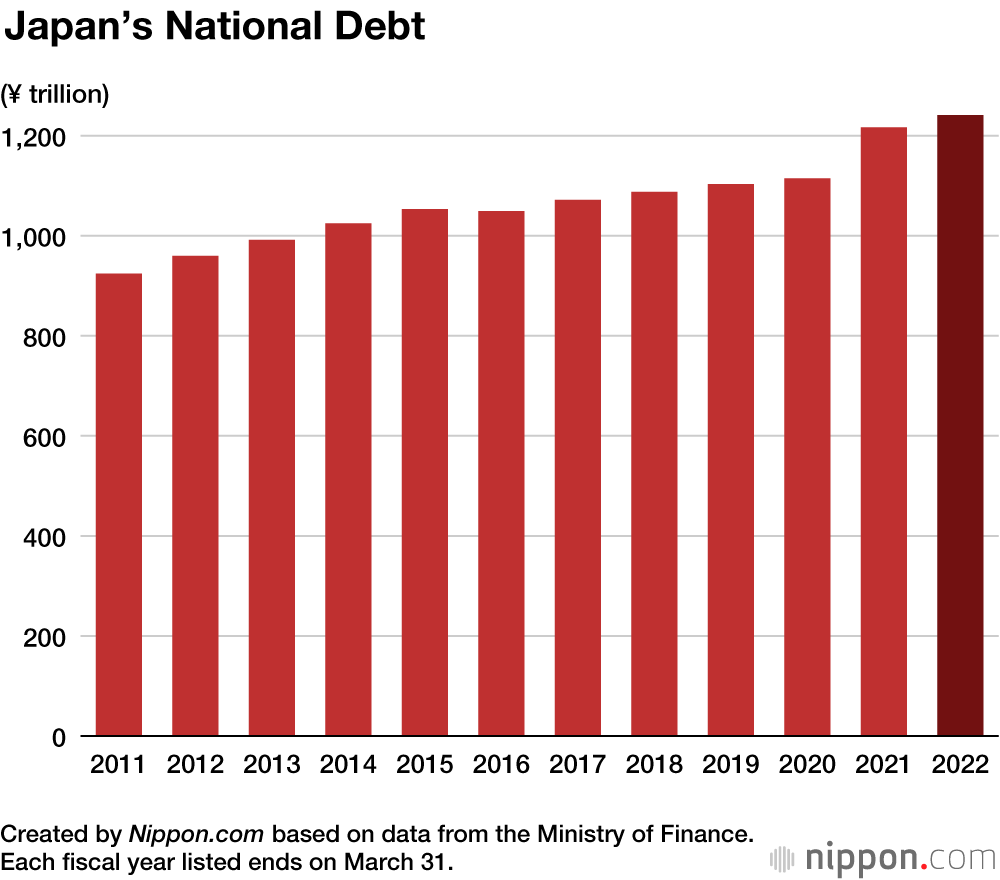
Japan’s Per-Capita Debt Exceeds ¥10 Million Mark for First Time
Politics Economy- English
- 日本語
- 简体字
- 繁體字
- Français
- Español
- العربية
- Русский
As of March 31, 2022, Japan’s national debt, which is the sum of the outstanding balance of government bonds, loans, and financing bills, reached its highest amount yet at ¥1,241 trillion. In the previous year, there was an increase of ¥24.8 trillion, mainly due to fiscal stimulus measures implemented in response to the COVID-19 pandemic. It is the sixth year in a row that debt has hit a new record high.
A calculation based on the estimated Japanese population of 122.7 million (as of November 1, 2021) shows that per-capita debt for all citizens, from newborn babies to centenarians, was more than ¥10.1 million. This is the first time per-capita debt has exceeded the ¥10 million mark.
The main increase in debt was due to a year-on-year rise in the issuance of government bonds, which account for the bulk of the debt, by ¥30.5 trillion to ¥1,104 trillion. Japan’s outstanding long-term debt that needs to be repaid through taxes also soared to ¥1,017 trillion, surpassing ¥1,000 trillion for the first time.
(Translated from Japanese. Banner photo © Pixta.)
